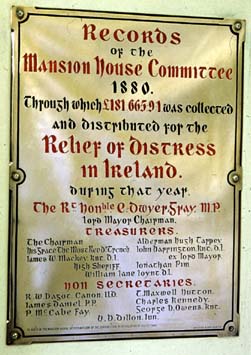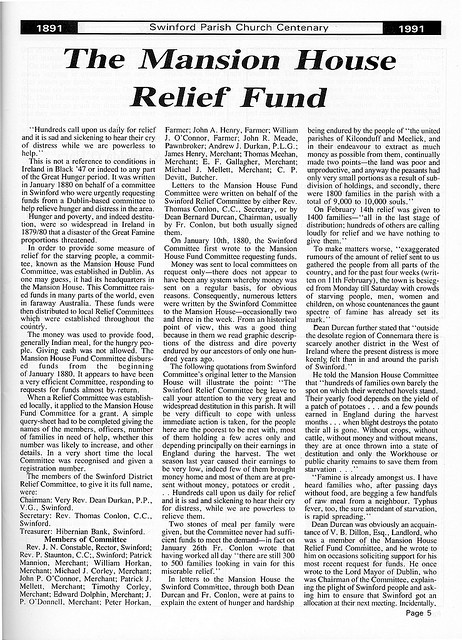*The following information was found by Rodger Smith, who plays Andrew Undershaft in our production. Thank you for finding these resources!*
"Quick and cursory research indicates that charitable funds known as Mansion Houses were/are charitable organizations that probably first began in Ireland. At least those were the first references I found. Mansion House charities are in operation today and usually arise after some titanic event. Of importance to Undershaft is the idea that such organizations relieved “business” from having to increase wages or otherwise be responsible for the people of poverty and labor affected by changes in the economic environment. Undershaft understands business as a solution to the conditions of the time, not as a socialist resolution between rich and poor, but more a “trickle down effect” enabling the opportunity for everyone who wishes to make their own way to do so, “That is the history of most self-made millionaires. When it is the history of every Englishman then we will have an England worth living in.”
Three examples are:
1. “In times of economic distress communities in Ireland were heavily reliant on charitable organizations to supplement their basic wages or provide relief during crop failures. Charitable organizations had wound down relief works in the years following the Great Famine as Ireland gradually recovered. However successive failures of harvests from 1877 - 1879 led to widespread devastation and hunger, historically known as the 'Little Famine' of 1880.”
http://www.askaboutireland.ie/reading-room/history-heritage/big-houses-of-ireland/the-mansion-house/relief-fund/
2. “The Mansion House Fund was a charitable organization started by the Lord Mayor of London in 1899, soon after the onset of the South African War. Its purpose was to bring financial relief to the Uitlander refugees who had become destitute as a result of the war. Its distributional headquarters was in Cape Town. Contributions in excess of £200,000 were raised in Britain and South Africa, with disbursement of the funds left in the hands of a Central Committee in Cape Town, the Governor acting as chairperson. The money was thereupon distributed through local committees in the various towns. At East London almost 4,000 people received aid at various times.”
<http://www.eastlondon-labyrinth.com/history/boer-war-04.jsp>
The following is an excerpt from The Spectator Archive of an 1886 publication:
3. 20 NOVEMBER 1886, Page 2
The Committee of the Mansion House Relief Fund have published their report upon the proceedings of the year. They raised last year, which was one of exceptional severity, a sum of £78,600, and expended it ; but they are not contented with themselves. They say the difficulties of discrimination are great, that the local agencies cannot suddenly meet new demands upon them, and that the fund itself draws applicants to London, thereby increasing the congestion already caused bythe popular belief that there " is always work in London." They therefore urge that thorough inquiry should precede the raising of any new fund, that any distress become chronic should be left to the- Poor-Law officers, and that the philanthropic societies should establish a central body in each Poor-Law Union, competent to- act with the Mansion House, and, we may add, with the Local Government Board. That seems sensible, but we do not place much confidence in these spasmodic efforts. What is wanted is the power of suddenly adding to the means of inquiry and distribution possessed by the Guardians, leaving private charity to fill up chinks. At present, a portion of the distressed, and not the most worthy, are over-relieved, while the general want remains almost as before.
http://archive.spectator.co.uk/article/20th-november-1886/2/the-committee-of-the-mansion-house-relief-fund-hav
https://docs.google.com/document/d/1bcvCPwXMjbzUFyVUZJdm88bhV3Ryulsqx6kJkDc6bFw/edit


 RSS Feed
RSS Feed